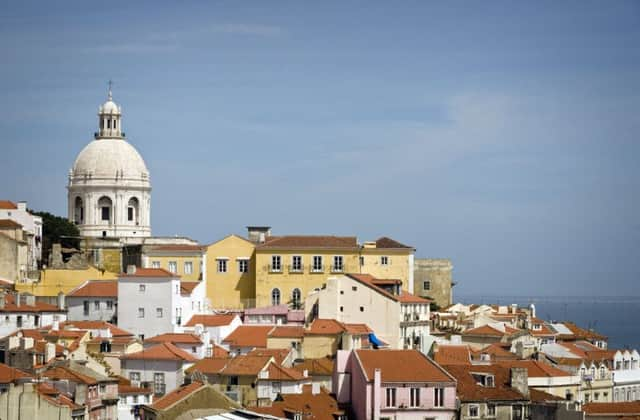Travel: Lovely Lisbon


When I lived in Lisbon 14 years ago, I stayed, rent-free, in a dilapidated 12-bedroom palacio owned by a bon vivant called Jorge who wafted through its crumbling corridors with an air of faded grandeur.
He typified an aristocratic capital since forgotten by the rest of Europe, where colourful characters eked out a fantasy existence by surviving on cheap rents.
Advertisement
Hide AdAdvertisement
Hide AdFor decades, Lisbon has been trapped in a wonderful time warp: specialist shops still sell products from behind wooden counters and weathered doorways reveal historic interiors untouched for years.
But now change is happening at an accelerating pace, and there’s a palpable energy in a city that’s drifted aimlessly for so long.
According to figures collected by Lisbon’s tourist board, the number of visitors to the city increased by 18% from 2013-2015. To cope with the demand, there has been 150% growth in hotel openings during the same period.
Flight access is also improving; earlier this month Monarch launched flights from Manchester, Birmingham and London to the Portuguese capital.
So what’s the reason behind this drastic change?
Advertisement
Hide AdAdvertisement
Hide AdIt’s partly down to changes in government. Four years ago, a century-old law freezing rent charges was scrapped, sparking investment in rundown properties and a plethora of new restaurants and bars.
The results could have been disastrous.
Fortunately, though, proud Lisboans prefer to preserve their past rather than raze buildings and start again.
Once dominated by government offices and embassies, Rua Dom Pedro V and the Principe Real district is now filled with wine bars, fashion boutiques and design stores. Climb the wooden staircase of revamped 1800s neo-Moorish mansion Embaixada (Praca do Principe Real, 26) to find ornate interiors just as beguiling as the pop-up shops now housed inside.
The concept of upcycling was key to the design of new hotel AlmaLusa Baixa/Chiado, which occupies a former arsenal on Praca do Municipio - another area of the city enjoying a new lease of life.
Advertisement
Hide AdAdvertisement
Hide AdDirector of operations Sofia Brandao shows me the original flooring - one of the few parts not to be flattened in the city’s devastating 1755 earthquake - and highlights fragments from the property’s more recent past: silver-stained mirrors from a barber’s shop hang in the restaurant, and Moroccan tiles once sold in a showroom decorate bathrooms.
“We’re offering people ‘smart luxury’,” says Sofia, referring to boutique bedrooms that look much more expensive than their 145 euro price tag.
In fact, every aspect of the city offers great value for money. In April, Post Office Travel Money rated Lisbon the cheapest city in Western Europe in their City Costs Barometer.
It’s possible to dine in a neighbourhood restaurant for 10 euro per head and even the 45-minute metro journey from the airport into town costs less than a couple of euros.
Advertisement
Hide AdAdvertisement
Hide AdThis is also one of the few European cities where independent businesses have the upper hand on generic big brands.
From dusty, traditional stores to trendy new openings, local shops champion artisan Portuguese products such as paper-wrapped soaps, household linens and even canned fish.
At Miss Can (www.miss-can.com), close to Sao Jorge Castle, the owner sells canned mackerels smoked using methods employed by her fisherman grandfather in 1911; and in the dockside Time Out Ribeira Market, journalists from the city guide series have curated their favourite street food stalls and craft vendors from around the city.
Of course, Lisbon still bathes in the glory of its historical sites - including the Unesco World Heritage sites of Belem, linked to the Age of Discoveries.
Advertisement
Hide AdAdvertisement
Hide AdStanding beneath the Monument to the Discoveries, where statues of 33 navigators reach out to the River Tagus, I imagine a time when Vasca do Gama set sail to extend the Portuguese Empire.
Right now though, there’s so much on Lisbon’s own doorstep to explore.